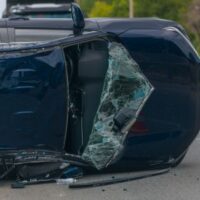The Statute of Limitations and Wrongful Death Claims Arising from Car Accidents in Pennsylvania

When a family loses a loved one in a car accident caused by another person’s negligence, the devastation extends far beyond grief. It brings unexpected financial burdens, emotional distress, and an urgent need for justice. In Pennsylvania, the law allows surviving family members to seek accountability through a wrongful death lawsuit. However, strict time limits apply, and missing those deadlines can permanently bar your claim.
Speaking with an experienced Philadelphia wrongful death attorney as early as possible can ensure your family’s rights are protected and that you receive the compensation you deserve.
Understanding Pennsylvania’s Wrongful Death Statute of Limitations
Under Pennsylvania law, the statute of limitations is the time period within which a lawsuit must be filed. For most wrongful death claims, this period is two years from the date of the victim’s death, as outlined in 42 Pa. C.S. § 5524(2). This means that if a fatal car accident occurred on October 1, 2024, the surviving family or estate representative generally has until October 1, 2026, to initiate legal action.
This deadline is not flexible. If the lawsuit is filed even a single day late, the court will almost always dismiss it, regardless of the strength of the underlying case. That’s why timely legal action is so critical. The statute of limitations ensures fairness by preventing evidence from being lost or witnesses from forgetting crucial details, but it also places the burden on families to act quickly during an already painful time.
Who Can File a Wrongful Death Claim in Pennsylvania
Under 42 Pa. C.S. § 8301, only certain family members or representatives may bring a wrongful death lawsuit. The right first belongs to the deceased person’s spouse, children, or parents. If none of these individuals file a claim within six months, the personal representative of the estate may file the lawsuit on behalf of all beneficiaries.
This structure ensures that compensation is distributed fairly among those who have suffered the greatest loss, including financial and emotional support. Damages may include funeral expenses, medical bills related to the fatal injury, lost wages, loss of companionship, and the value of household services the deceased provided.
Car Accidents and Wrongful Death: Establishing Liability
Car accidents remain one of the leading causes of wrongful death in Pennsylvania. According to the Pennsylvania Department of Transportation, more than 1,200 people lose their lives in motor vehicle crashes each year. Many of these fatalities are preventable, caused by impaired driving, distracted driving, speeding, or reckless behavior behind the wheel.
To succeed in a wrongful death claim arising from a car accident, the plaintiff must prove that the at-fault driver owed a duty of care, breached that duty through negligent or wrongful conduct, and directly caused the fatal crash. Evidence such as police reports, accident reconstruction analysis, medical records, and eyewitness statements all play a key role.
An experienced Philadelphia wrongful death attorney will also ensure that every potentially liable party is identified. In some cases, liability may extend beyond the driver to include employers (in commercial vehicle accidents), manufacturers of defective auto parts, or even government entities responsible for hazardous road conditions.
Exceptions and Tolling of the Statute of Limitations
Although the two-year statute of limitations is the standard rule, limited exceptions can extend, or “toll”, the filing deadline. For instance, if the death resulted from an act of fraud or concealment, or if the identity of the negligent party was unknown and could not reasonably be discovered, the court may allow more time to file.
However, special timing rules apply when the defendant is a government entity. Under 42 Pa. C.S. § 5522, families pursuing wrongful death claims involving state, county, or municipal agencies must provide a formal written notice within six months of the accident. Failure to do so can bar recovery entirely, even if the two-year statute has not yet expired.
These procedural details are often complex, and courts interpret them strictly. Consulting an attorney immediately after the tragedy ensures all deadlines are met and evidence is preserved before it’s lost or altered.
Why Early Legal Action Matters
Beyond meeting the statute of limitations, early legal action can significantly impact the outcome of a wrongful death claim. Over time, crucial evidence like skid marks, surveillance footage, and electronic data from the vehicle’s “black box” may disappear. Witnesses may move or forget details, and insurance companies often act quickly to protect their own interests.
By engaging an attorney right away, families can preserve vital evidence, secure expert testimony, and build a strong foundation for their case. Legal representation also provides peace of mind, allowing families to focus on healing while their lawyer handles negotiations, court filings, and communications with insurers.
Contact The Villari Firm
Losing a loved one in a car accident is one of life’s most heartbreaking experiences. When that loss results from someone else’s carelessness, your family deserves justice and financial security. The Villari Firm has spent more than two decades representing families across Pennsylvania in wrongful death and catastrophic injury cases. Our compassionate legal team understands both the emotional and legal challenges these claims bring.
If you believe negligence caused your loved one’s death, contact a Philadelphia wrongful death attorney at The Villari Firm for a free, confidential consultation. We will review your case, explain your options, and fight tirelessly to hold the responsible parties accountable.
Source:
- Pennsylvania General Assembly – 42 Pa. C.S. § 5524: Two-Year Limitation
- Pennsylvania General Assembly – 42 Pa. C.S. § 8301: Wrongful Death Action
- Pennsylvania General Assembly – 42 Pa. C.S. § 5522: Six-Month Notice for Actions Against Government Units
- Pennsylvania General Assembly – 42 Pa. C.S. § 8522: Exceptions to Sovereign Immunity
- Pennsylvania Department of Transportation – Crash Facts & Statistics (2024 Brief)
